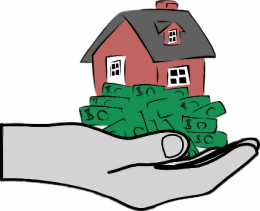If you or someone you know needs water or energy assistance, take advantage of the application period for these programs that runs until March 30.
 Emergency Water Assistance Program – this program’s purpose is to restore or prevent disconnection of water to Kansas households earning less that 150 percent of the Federal Poverty Level which equals $3,469 a month for a family of four.
Emergency Water Assistance Program – this program’s purpose is to restore or prevent disconnection of water to Kansas households earning less that 150 percent of the Federal Poverty Level which equals $3,469 a month for a family of four.
This program provides a one-time payment to restore or prevent disconnection of drinking water and wastewater services. This program is administered by the Kansas Department for Children and Families. DCF is required to pay public water utility vendors directly on behalf of qualifying households.
Once the funding is depleted the program will end. Applications, instructions, and income limits can be found online at www.DCF.KS.gov/EWAP.
Low-Income Energy Assistance Program – this federally-funded program helps eligible households pay a portion of their home energy costs by providing a one-time per year benefit. Applications must be received prior to 5 p.m. March 31.
In order to qualify, applications must meet the following requirements:
- An adult living at this address must be personally responsible for paying heating costs at the current residence, payable either to the landlord or the fuel vendor.
- Applicants must demonstrate a recent history of payments toward purchase of the primary heating energy.
- The combined gross income (before deductions) of all persons living at the address may not exceed 150% of the federal poverty level.
More information can be found at https://www.dcf.ks.gov/services/ees/Pages/EnergyAssistance.aspx or by calling 1-800-432-0043
By: Brenda Langdon


